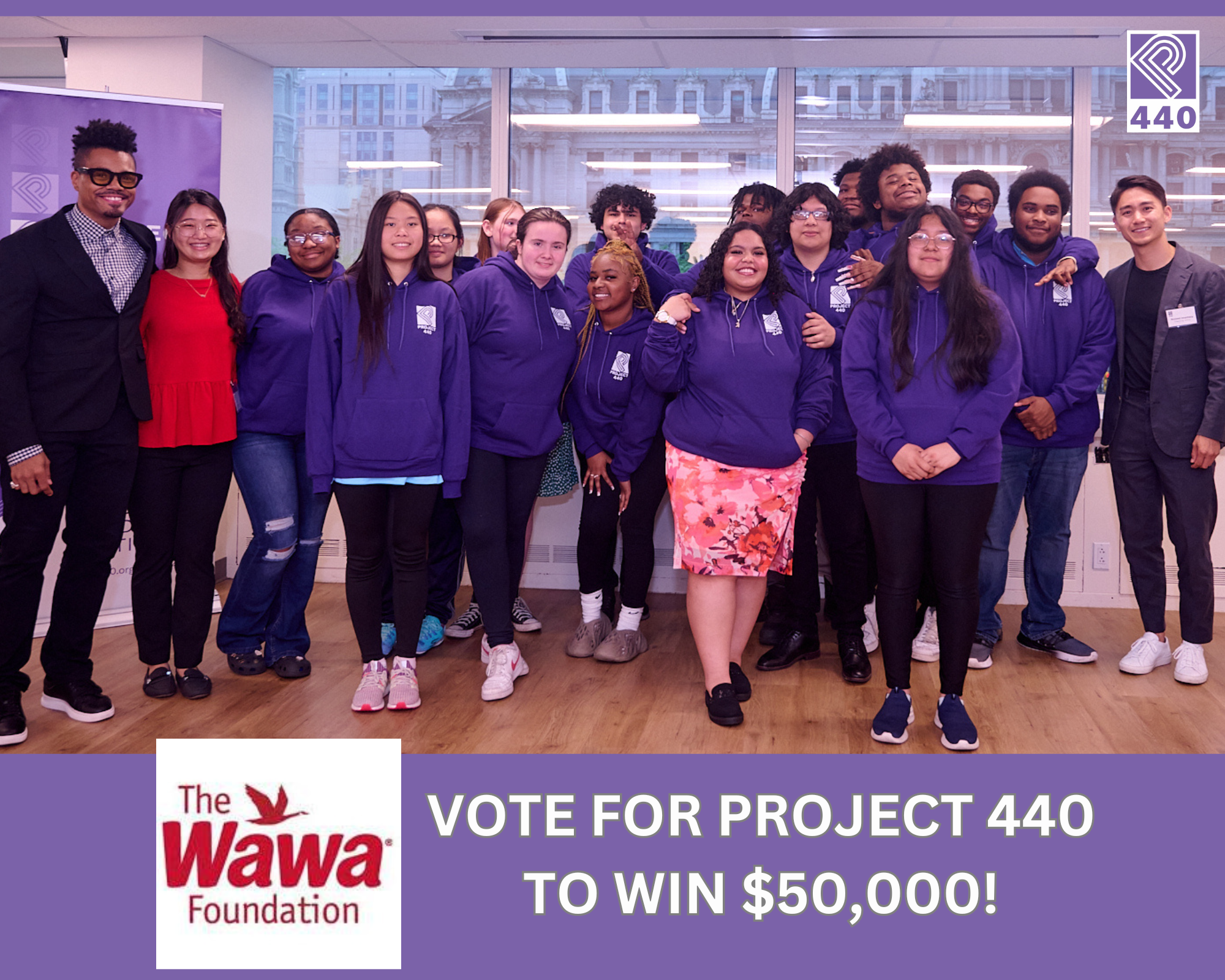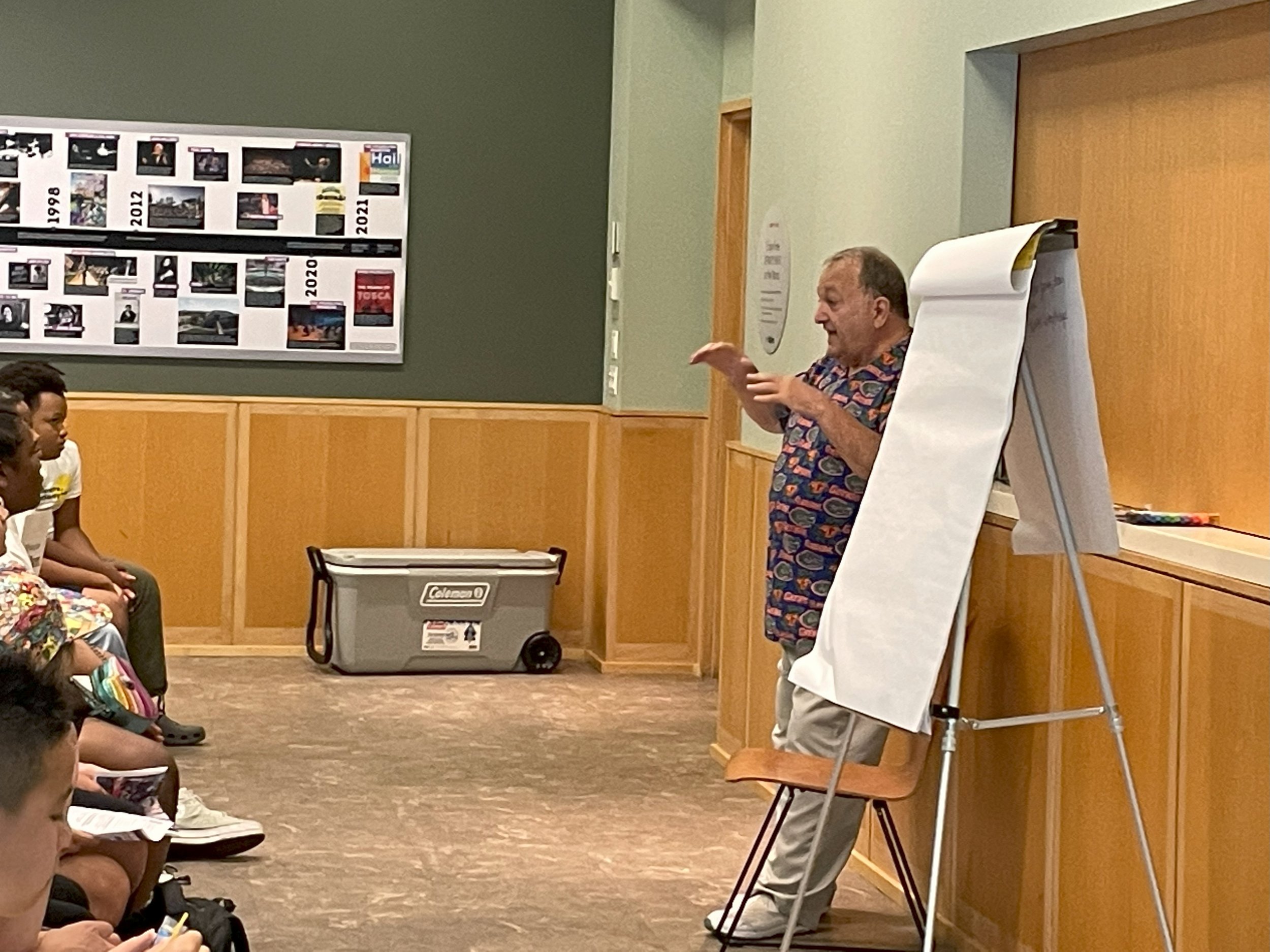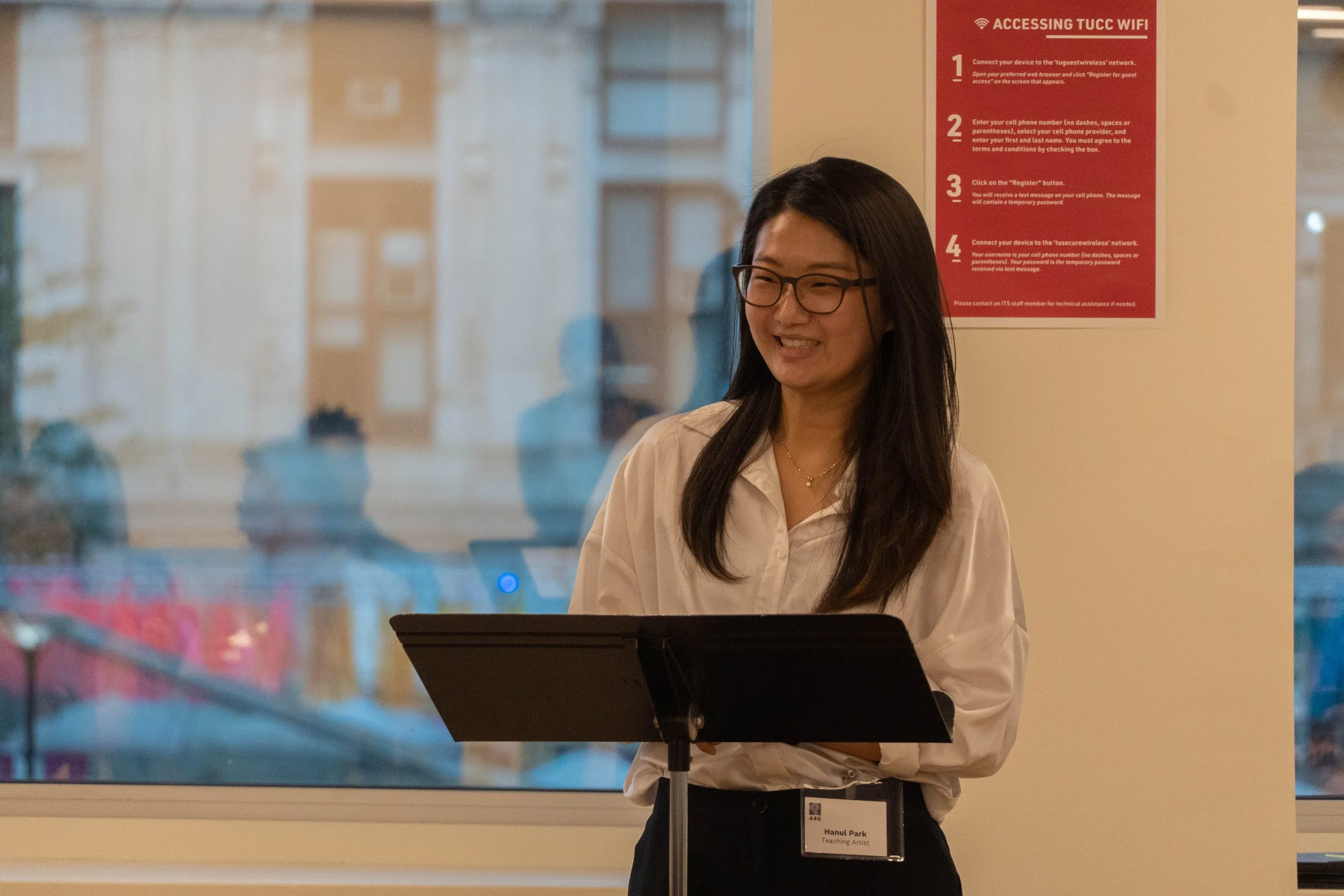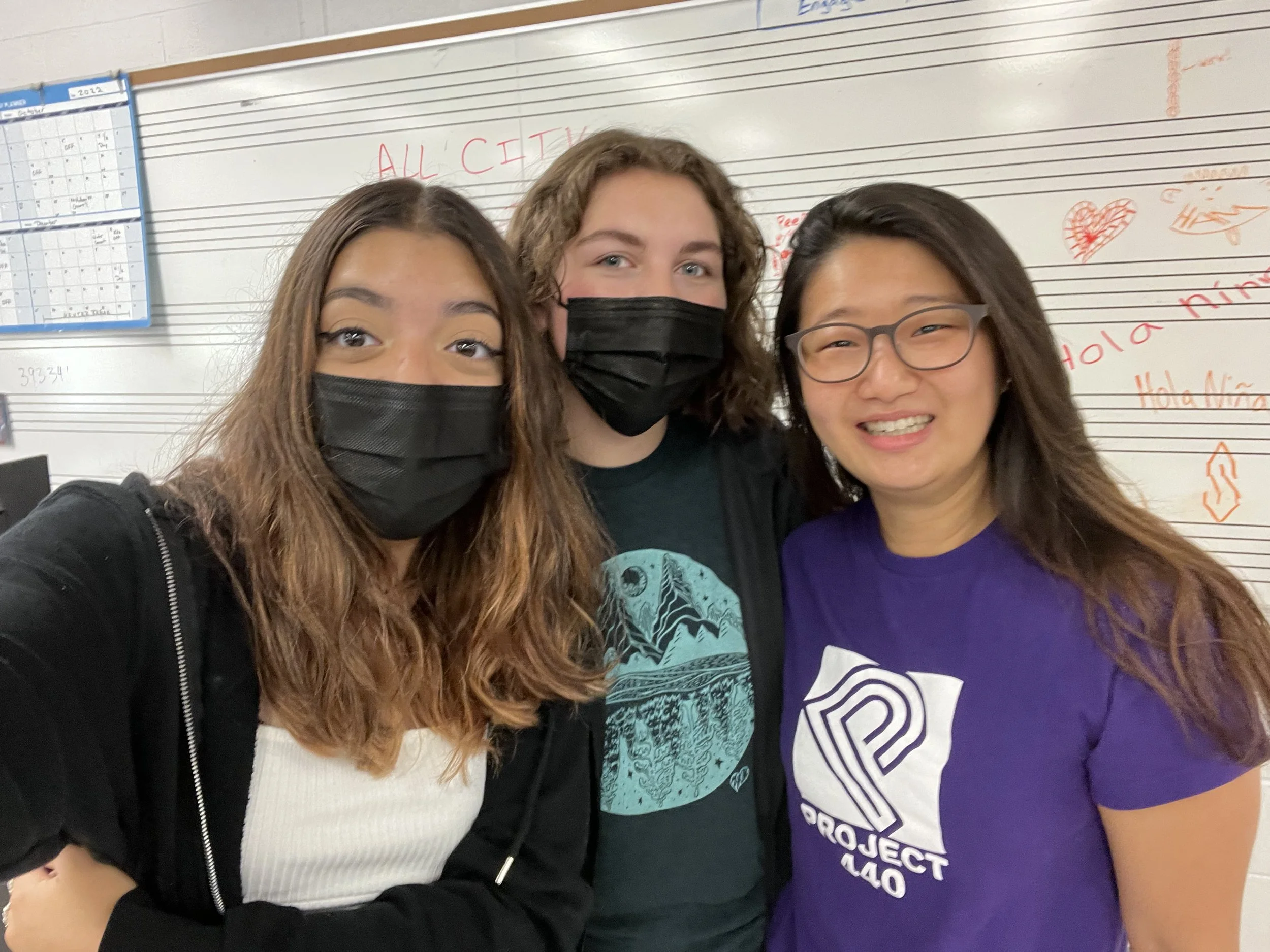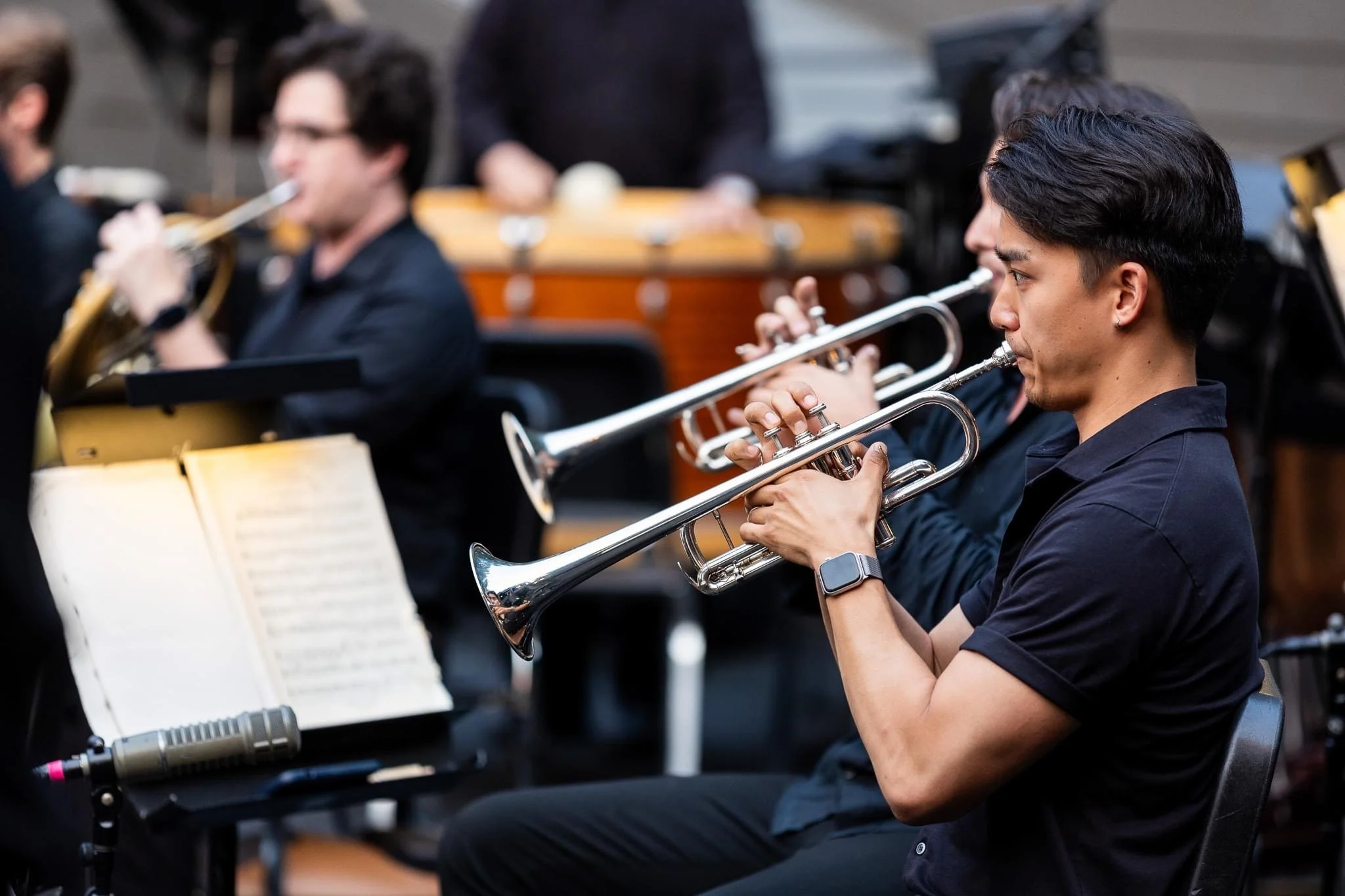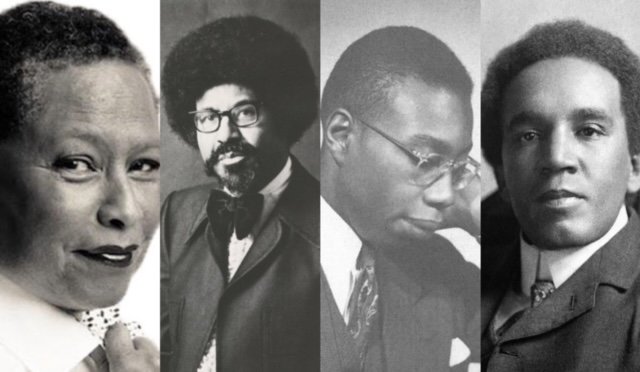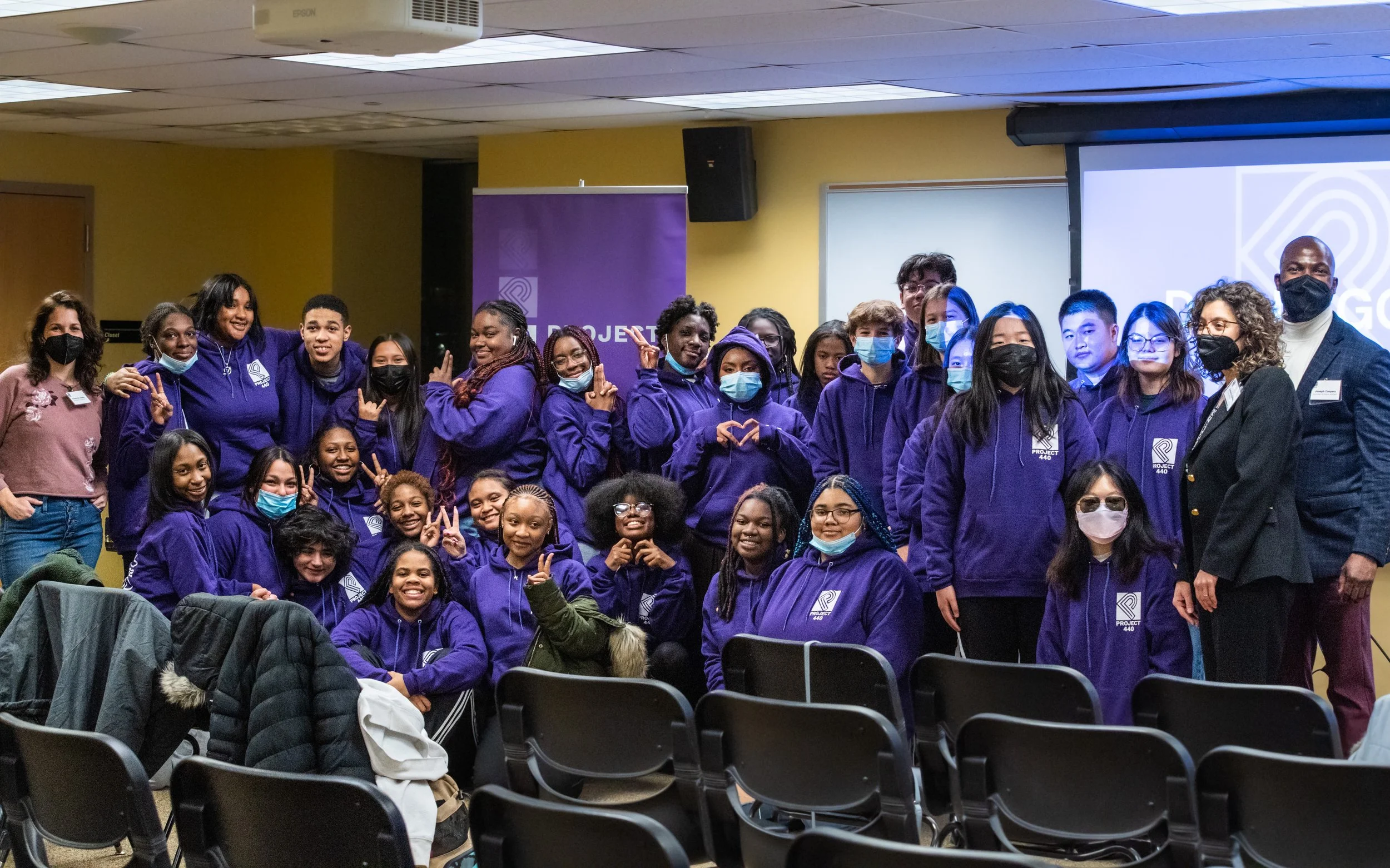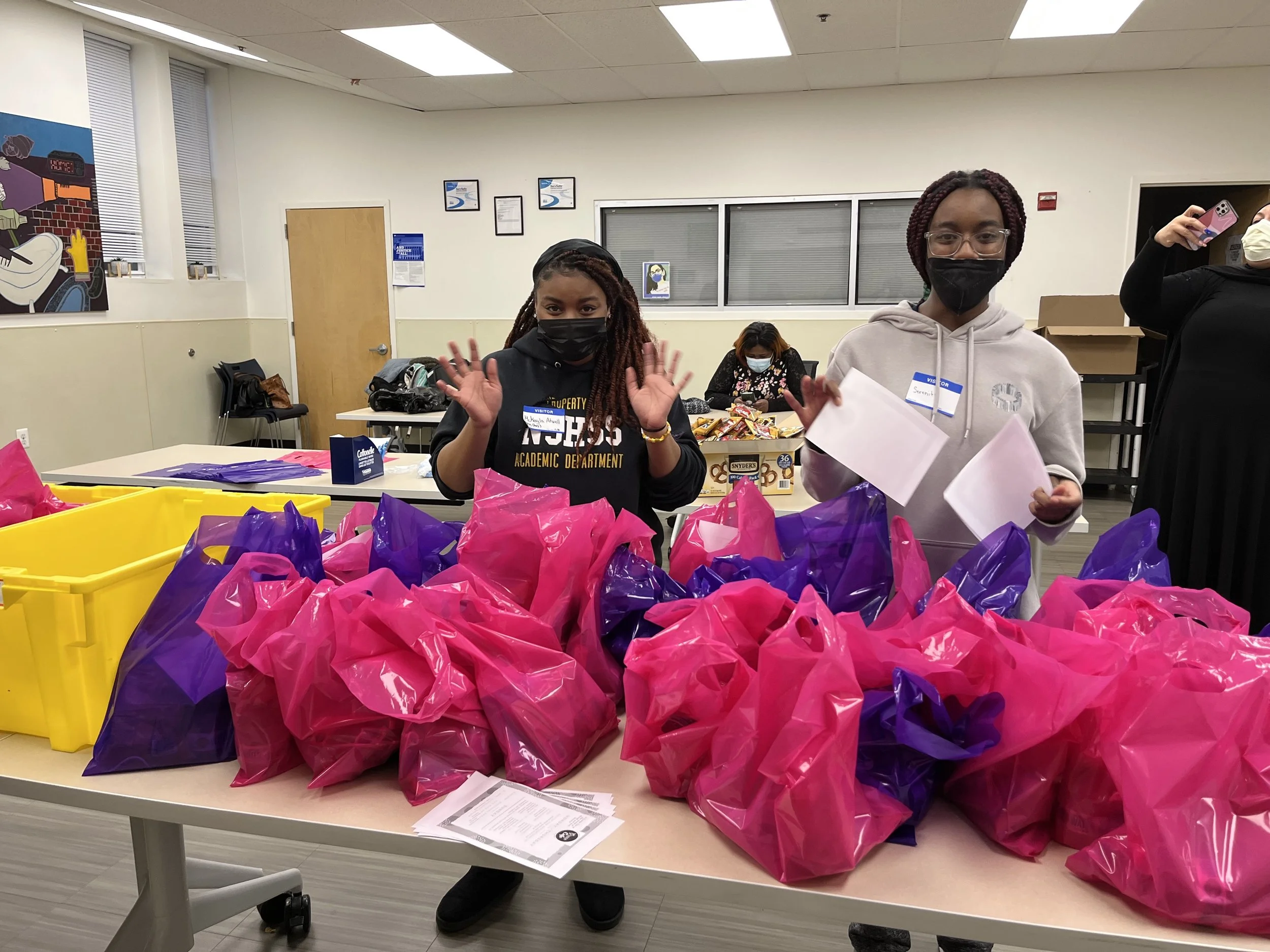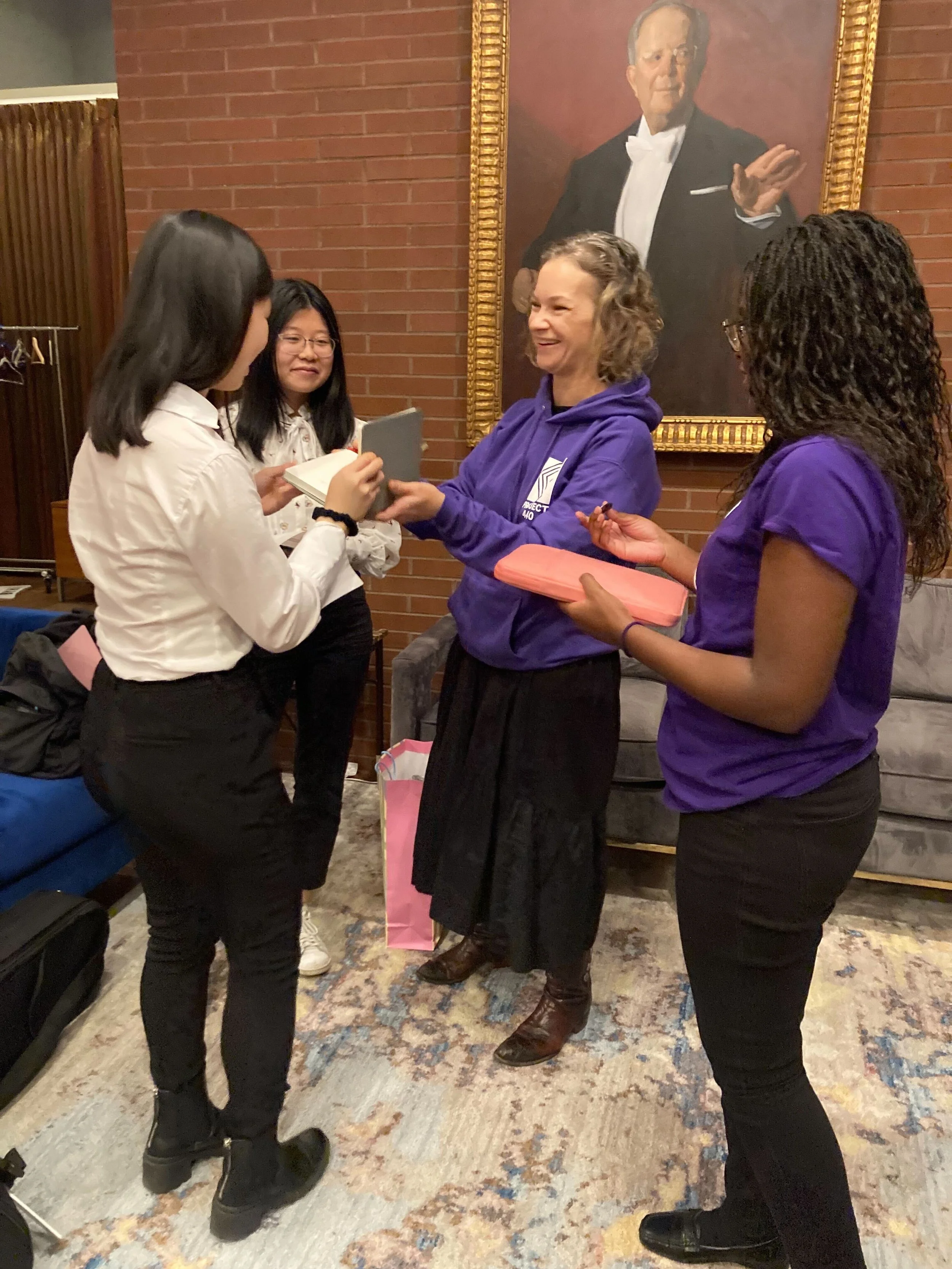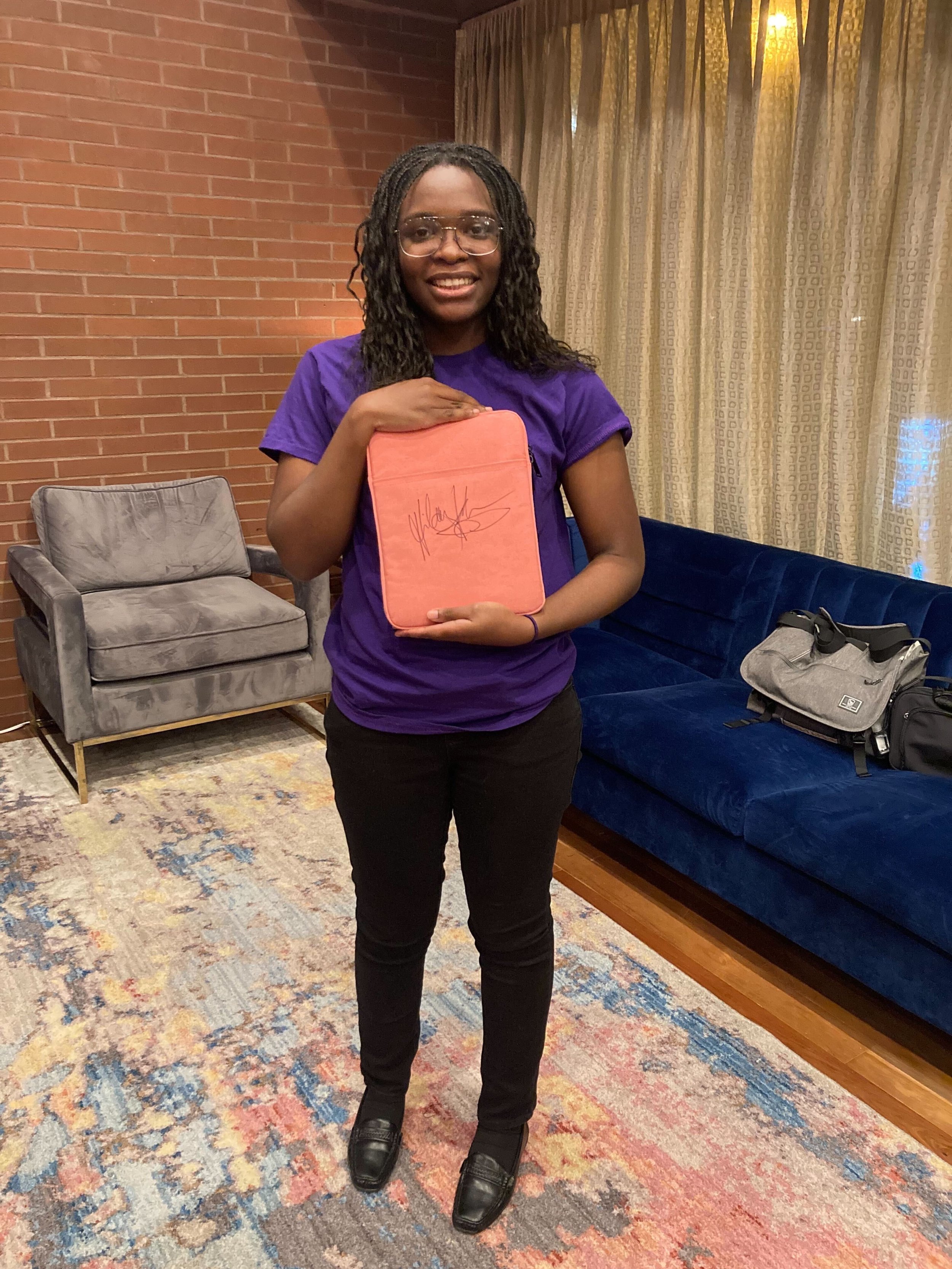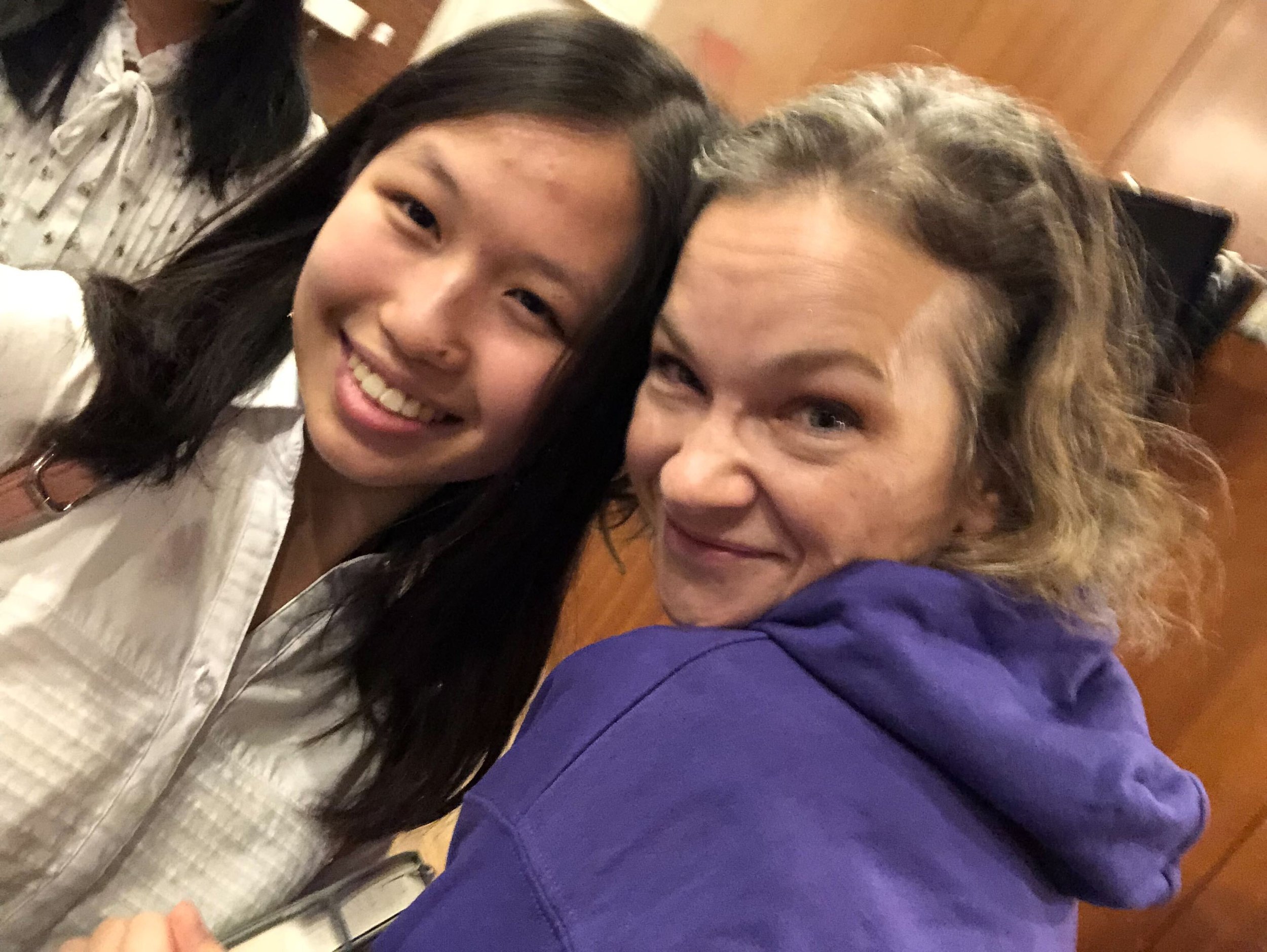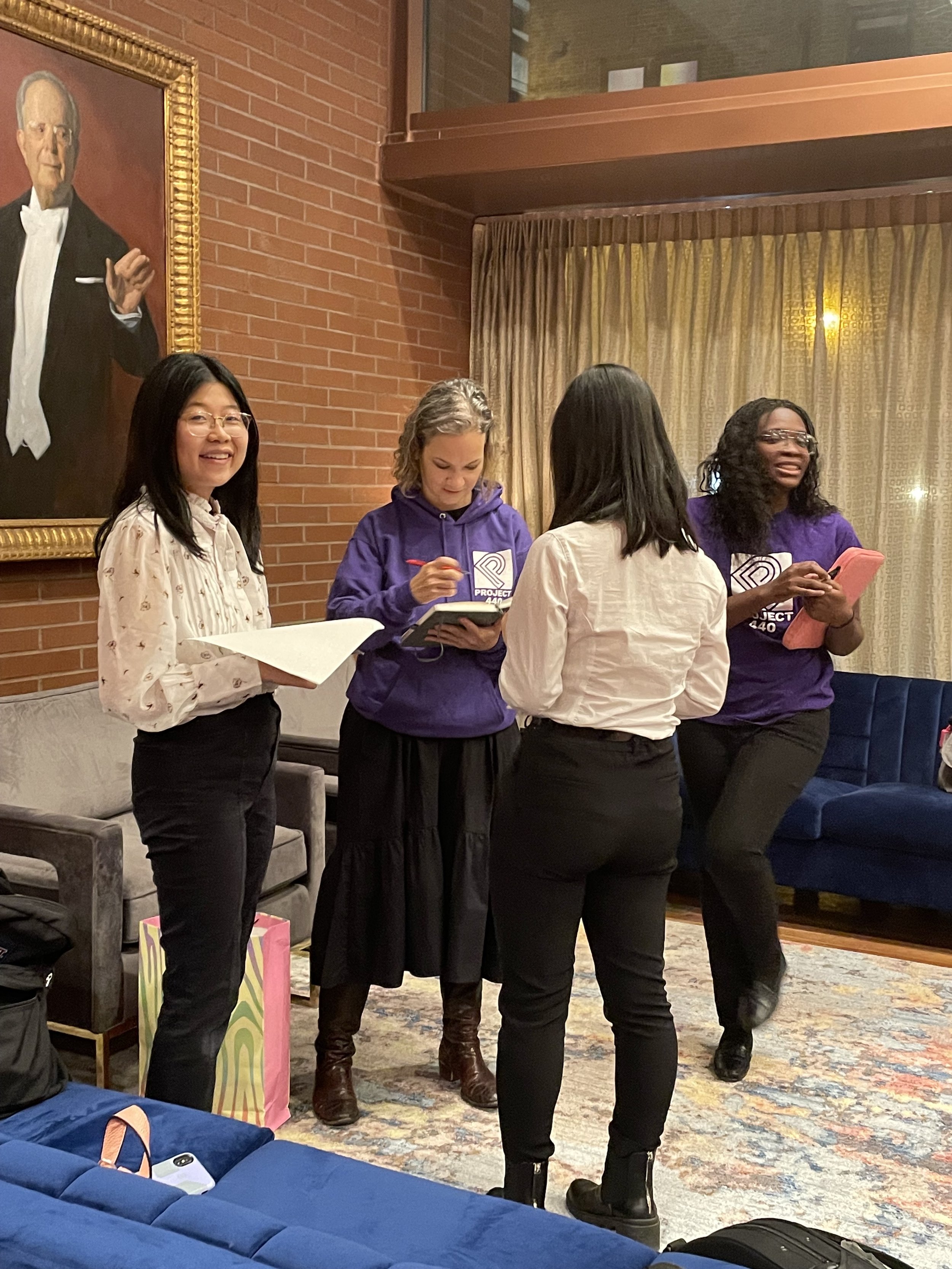Thank you for making our $44K+ For Project 440 campaign a success. Thanks to our Project 440 community, we raised $46,084 from 97 individuals and surpassed our fundraising goal. We are immensely grateful for this generosity and to John McFadden and Lisa Kabnick for providing a matching grant of $45,000! With the support of our growing community, we will be able to offer more opportunities for Philadelphia youth to explore their creativity, envision their future, and discover the joy of service. THANK YOU!
Project 440 is a Wawa Foundation Hero Award Finalist
Vote for Project 440 to win $50,000
Project 440 is thrilled to announce that after receiving more than 402 submissions, The Wawa Foundation has named us one of four finalists for its “2024 Wawa Foundation Hero Award." This honor is to be given to a non-profit organization, and its volunteers, serving Philadelphia by providing services that build stronger communities through preserving our independence, protecting our safety and mentoring and inspiring our youth. With your vote, we could win $50,000 to support our free afterschool programs for Philadelphia youth!
We are so proud of our students and are honored to receive this recognition for Project 440 and our young citizen artists. With your vote, we can make an even greater impact in our community and serve more Philadelphia youth. THANK YOU!
vote for us by June 28
wINNER ANNOUNCED ON jULY 4tH
Pathway Resources for University of the Arts Students
On May 31, Philadelphia's University of the Arts (UArts) announced that it will close on June 7. Students who are personally impacted by this abrupt decision likely have many questions. You may have friends and classmates who are currently enrolled, were planning to start in the fall, or were considering applying to UArts who also have questions.
While we are still learning why UArts made this abrupt decision, we want to offer a forum for you, your friends, parents, and caregivers to ask questions and receive more information.
Cigus Vanni, aka the "College Fairy" and a college admissions expert who is the lead teacher of Project 440's Instruments for Success program, can answer your questions. You can email Cigus directly at Cigus@cigus.net.
Cigus Vanni, leads an introductory workshop about the college search and selection process for All City Orchestra Summer Academy (ACOSA) students at the Mann Center. July 2023.
The closure of UArts is shocking and a significant loss for Philadelphia. The academic community has quickly responded. UArts' partner schools, Temple University, Drexel University, and Moore College of Art and Design, are offering seamless transfer pathways for UArts students. Temple University leadership has announced that they are exploring the possibility of a merger.
Along with the partner schools, many colleges and universities in the Philadelphia region and beyond are also devising plans to welcome UArts students to their schools.
We have reached out to schools that have participated in our annual College Fair for Musicians and, with their support and cooperation, have compiled a still-growing list of schools that are providing resources and or a pathway for UArts students at their schools. You can access and download the list here.
Additionally, the Accepted portal (not associated with Project 440) has compiled a list of resources for UArts students and faculty. You can access more information and resources, including a list of participating schools, here.
Project 440 is committed to supporting our students and community during this transition. Please email Cigus Vanni if you have questions or would like more information!
MEET PROJECT 440 TEACHING ARTIST HANUL PARK
This month, we introduce you to Teaching Artist Hanul Park, who teaches Project 440’s Doing Good and Instruments for Success programs. Hanul is a bassoonist and freelance musician who plays throughout the Philadelphia region. She performs with the Princeton Symphony Orchestra, Ocean City POPS, and various ensembles in New York and the Tri-state area. Hanul teaches bassoon and chamber music at Swarthmore College, works with the Delaware County Youth Orchestra, and has a small private bassoon studio.
“Music was always a Big Part of my Life.”
Hanul grew up in a musical family. Her dad is a church musician with a Doctor of Musical Arts in choral conducting and says of her childhood, “Music was always a big part of my life!” Her first instrument was the violin, which she played through high school. She also grew up playing the piano and still plays occasionally for church.
Hanul’s parents taught at a Korean language school on Saturdays when she was in seventh grade. Her dad invited some of his colleagues to introduce various instruments to the students each week. When it was the bassoon class, her mom was curious about the instrument, so she got to observe that session with her students. She fell in love with the bassoon and thought it would be nice if one of her daughters could play the instrument, so Hanul started playing it a year later! She says, “Bassoon is my favorite instrument, but I always wanted to play the cello and the French horn.”
From Korea to Philadelphia
Hanul was born in the United States and moved to Korea when she was a few months old, where she spent her early childhood. She and her family moved back to the U.S. when she was nine, lived in Boston, and then moved to Oklahoma when she was a sophomore in high school. Hanul attended the Peabody Institute of the Johns Hopkins University in Baltimore for her undergraduate studies, then Yale School of Music for her master’s, and came to Philadelphia to attend the Curtis Institute of Music for her post-baccalaureate diplomas.
Hanul Park performing in the Curtis Symphony Orchestra
“I Constantly Learn from our Students”
Hanul leading Doing Good
Hanul says, “My favorite part of teaching Doing Good is the opportunity to constantly learn from our students and be a part of their lives. Our students care deeply about our communities, and I’m inspired by their passion and thoughtfulness in our discussions.”
Hanul also teaches Instruments for Success, Project 440’s college readiness and career pathways program. She says, “Growing up in an immigrant family, I was the first person to go to college in the U.S. from high school. Although the college application process was difficult to navigate at the time, I love that I now take part in helping our students through their journey. Another favorite aspect is teaching alongside our college fairy, Cigus Vanni! I’m always amazed by our guest speakers and their multi-faceted careers.”
On the Stage and Off
Hanul says she loves performing Mozart’s late Piano Concertos. She’s performed most of the Beethoven Symphonies but hasn’t had a chance to play his 3rd Symphony and would love to perform it someday!
She loves yoga, going to the gym, trying new recipes, and exploring coffee. She also enjoys spending time outside in nature and camping with her husband and their dog, Coda.
Hanul advises her students to “Do your best, take pride in all aspects of your life – you never know who you’ll meet and what will come out of it. And be kind to yourself!”
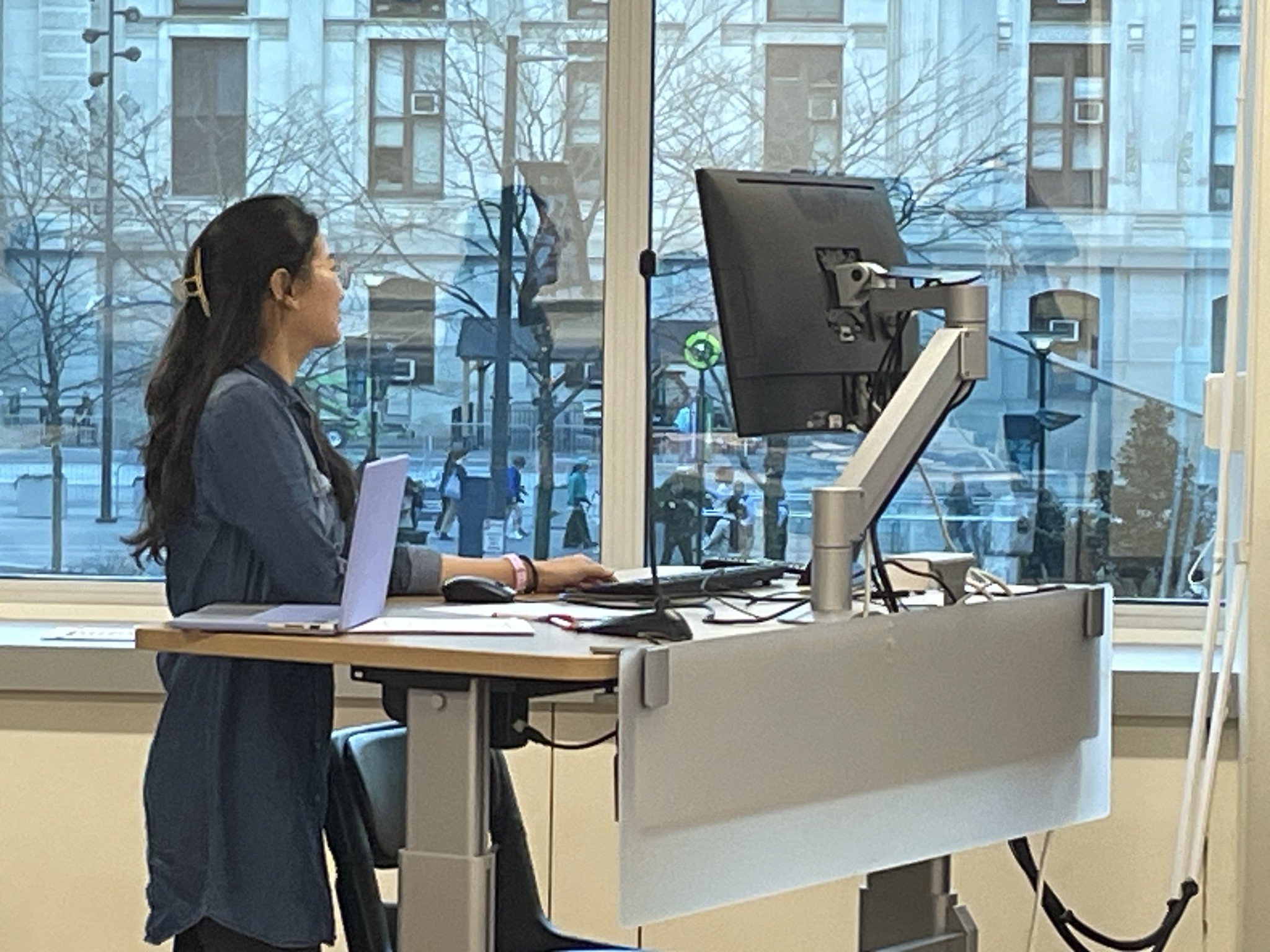
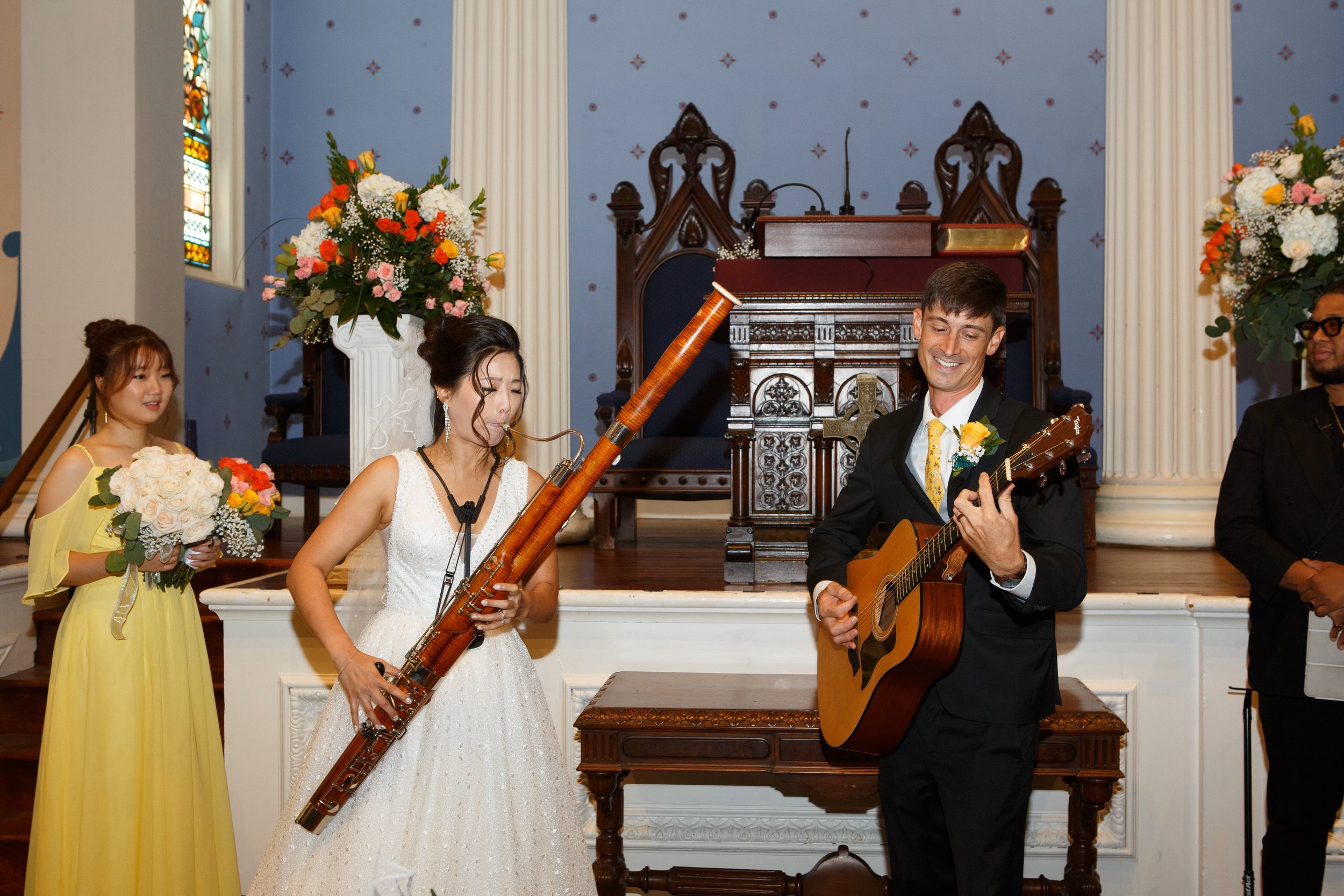
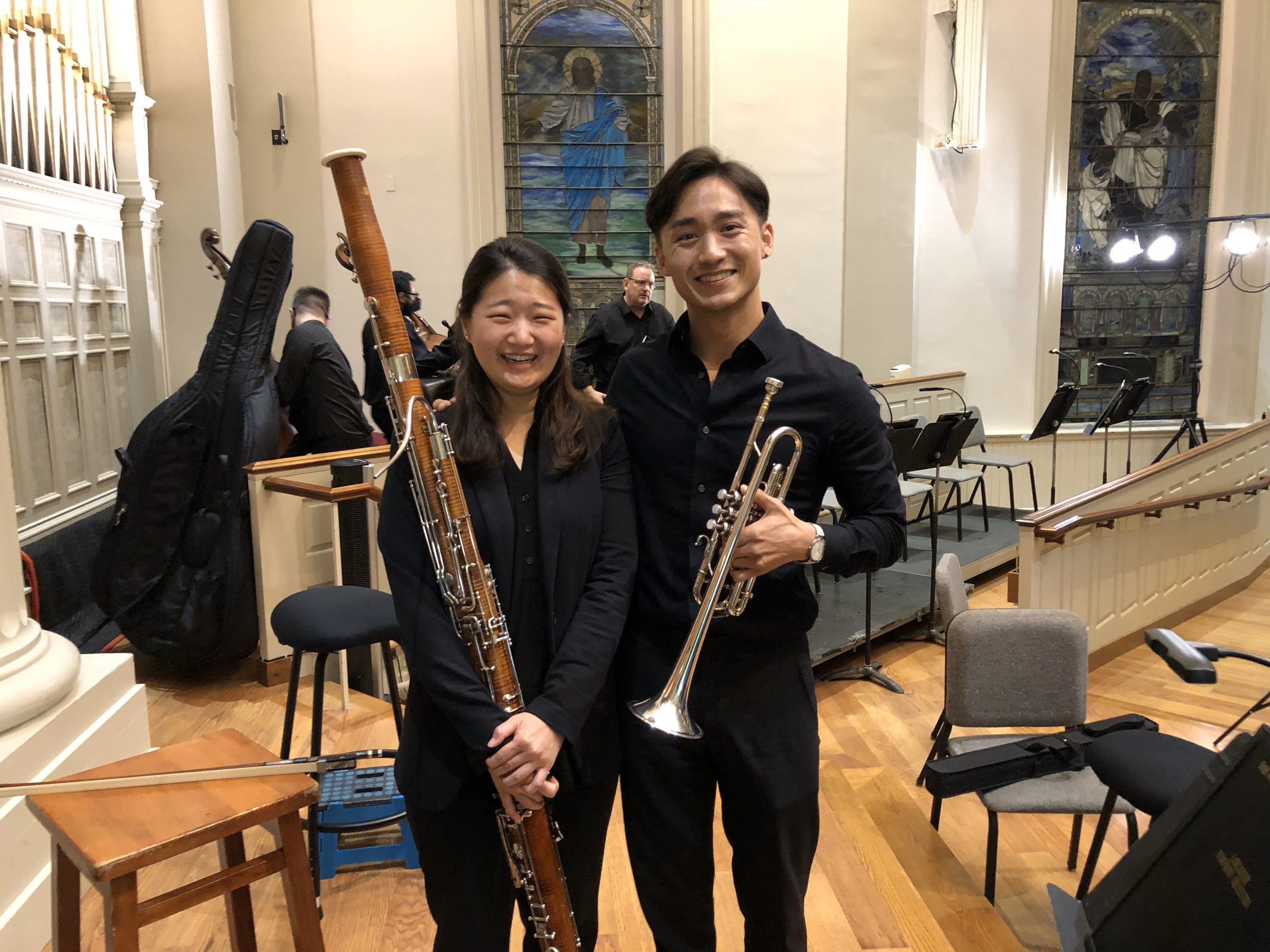
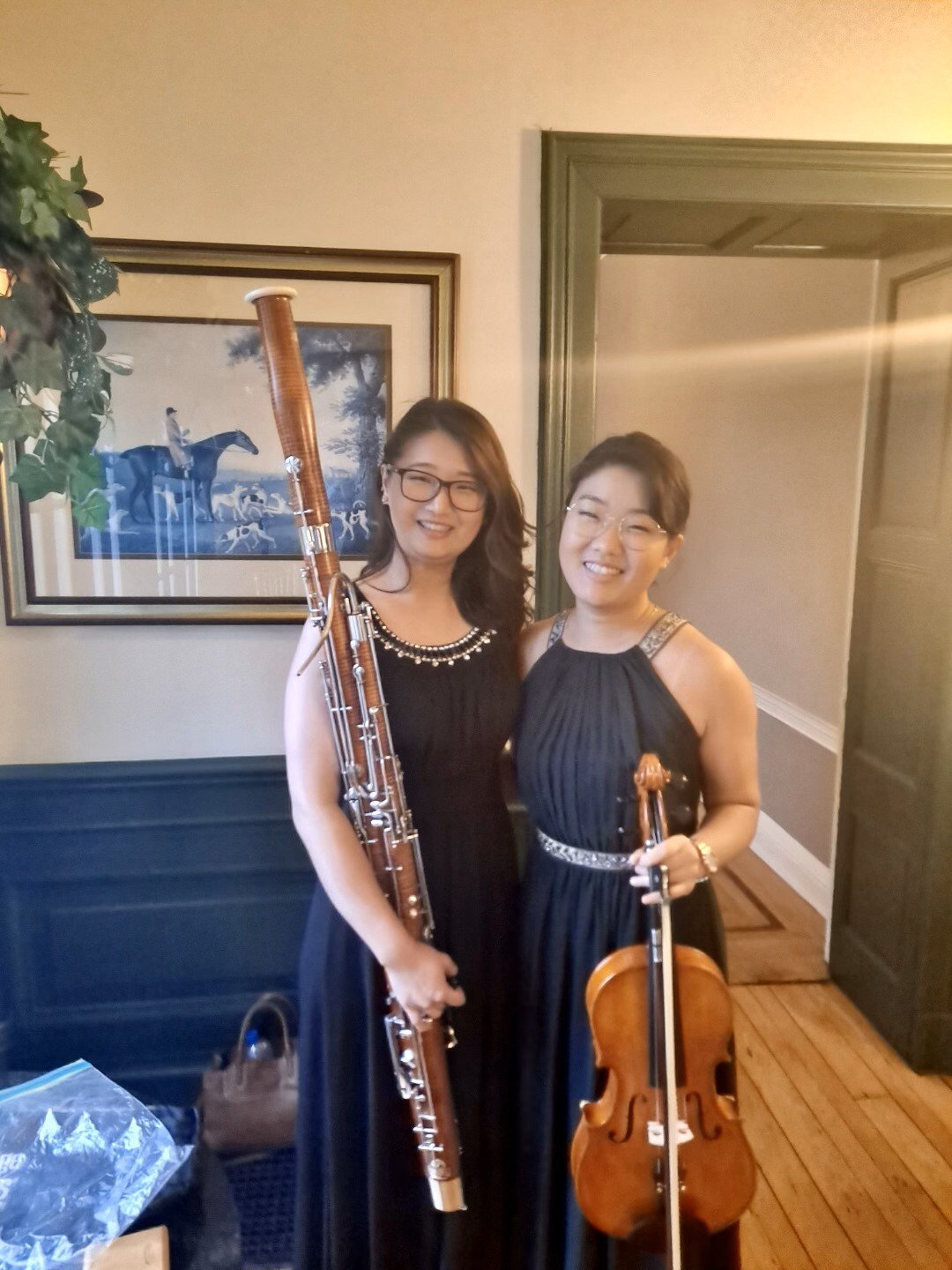
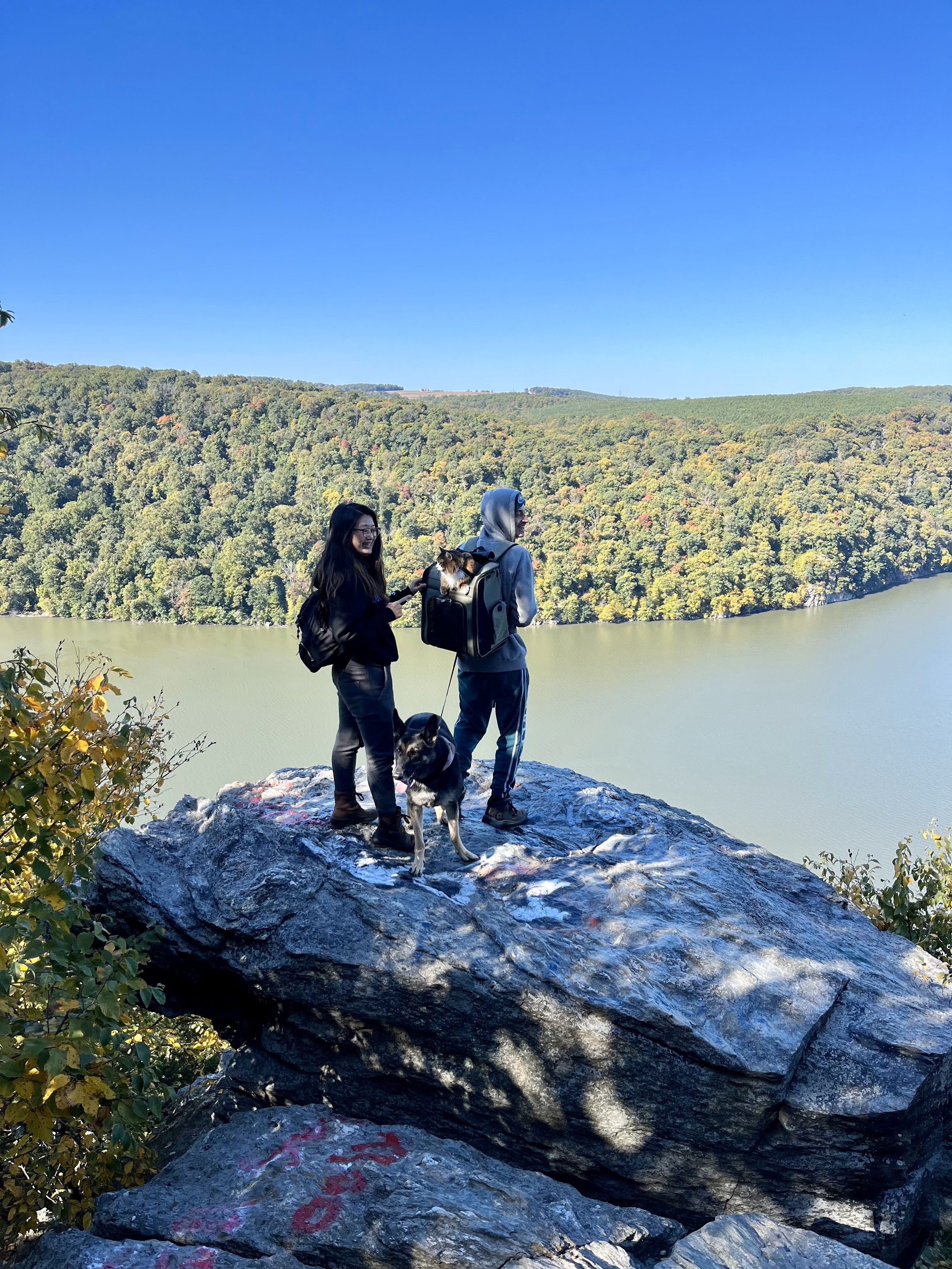
Meet Project 440 Teaching Artist Nozomi Imamura
Nozomi Imamura, Doing Good Teaching Artist
This month, we introduce you to Teaching Artist Nozomi Imamura. Nozomi teaches Project 440’s Doing Good program alongside Hanul Park. Nozomi is a musician, educator, skateboarder, and coffee aficionado! He is a trumpet player who performs with various ensembles, including the Allentown Symphony, Chamber Orchestra of Philadelphia, Opera Philadelphia Orchestra, and the Philadelphia Ballet Orchestra, where he is nearing the end of a 31-performance marathon of The Nutcracker.
From Australia to Philadelphia
Nozomi was born in Australia, lived in Japan and Germany, and grew up in Charlotte, North Carolina, before moving to Philadelphia in 2009. He began playing the piano at two and the euphonium at 9. He shared, “However, once I started playing the trumpet at 11, I became so captivated by it that I stopped playing other instruments. He received his bachelor's degree from the Curtis Institute of Music and master's degree from the Yale School of Music, both in trumpet performance. He returned to Curtis to complete the Community Artist Fellowship program.
Getting Involved with Project 440
Nozomi was a Community Artist Fellow at Curtis in 2017 and was eager to learn more about how music becomes a vehicle for change. His mentor (now a great friend), Mary Javian, told him about Project 440 and its work. Nozomi says, “I knew I wanted the opportunity to work with the organization. I reached out to Founder Joe Conyers, talked over coffee, and the rest is history.” Nozomi has taught the Doing Good program since 2018.
Hanul Park and Nozomi Imamura teaching Doing Good
Seven Schools Throughout the City
In addition to teaching at Project 440 and his busy performance career, Nozomi teaches music to students in fifth through twelfth grades. Each week, he travels to seven schools located all over the city. As an instrumental music teacher, Nozomi has to know how to play all woodwind and brass instruments. He says, “I am thankful I don’t have to teach string instruments; otherwise, my head would explode!”
Nozomi says, “My favorite part of teaching is witnessing the growth and development of students, both academically and personally, and knowing that you have played a role in their learning journey is rewarding. Additionally, having the ability to be creative in lesson planning and finding innovative ways to engage students, making the learning experience enjoyable, has also helped me become a better trumpet player.”
Teaching Doing Good
Nozomi shared the biggest difference between being a classroom teacher and Doing Good Teaching Artist. “I don’t use my trumpet to teach Doing Good. It took some time for me to feel comfortable conducting lesson plans without the comfort of holding my instrument. My favorite aspect of teaching Doing Good is meeting incredibly talented and passionate students. They never cease to amaze me with their creativity, compassion, and willingness to make a positive impact in our communities.”
Nozomi advises young artists with multi-faceted careers to focus on improving time management and organizational skills. He also recommends finding a way to destress. For him, it's cooking and working out.
Nozomi and Doing Good student Rasmey at Community Association for Music’s service-learning project.
Look for Nozomi on his electric skateboard
Nozomi says, “I go everywhere with my electric skateboard! It's such a great way to get around the city. If you spot someone on a skateboard with an instrument case on their back, that's probably me!”
His favorite music to perform is Sibelius. He shared, “I love Sibelius symphonies. So far, I’ve performed four of them (out of the seven), and I hope to play the rest of his symphonies one day. He also loves coffee and said, “I love coffee so much that I built my own coffee bar at home, consisting of an espresso machine, grinder, kettle, and a ton of mugs and gadgets. I enjoy a good cup of cortado or a pour-over.”
Nozomi Imamura and Hanul Park at the Temple University Center City Campus, where Project 440 holds its afterschool programs.
Meet Project 440 Alum Dillon Scott
Dillon Scott (center) won third place at the 2023 Sphinx Competition Senior Division.
Dillon Scott is from Lansdale, Pennsylvania. He attended North Penn High School and is a Project 440 alum who also performed with the Philadelphia Youth Orchestra and was the principal viola in his senior year of high school. He is currently studying viola with Roberto Díaz and Edward Gazouleas at the Curtis Institute of Music. Dillon loves reading and watching documentaries, specifically about sociology and science fiction. He says, “I like to go on walks and participate in meditative activities when I need to get some new perspectives.”
Dillon recently spoke with Project 440 about the Chamber Music of Black Composers, a program that he proposed, researched, and curated. Dillon and an ensemble of 15 Curtis musicians will perform the program on December 6 at the Curtis Institute of Music and December 9 at All Hallows Church in Wyncote. The program includes:
David Baker, Roots II Piano Trio
George Walker, String Quartet No. 1
Samuel Coleridge Taylor, Clarinet Quintet in F-Sharp Minor, op.10
Eleanor Alberga, String Quartet No.2
Researching the Composers and About the Program
I spent many weeks in the Curtis Library and Archive researching as many composers and pieces as I could. I took notes and tried to find as many music scores as I could. I also spent a lot of time online looking for commercial recordings of each piece to hear as many references as I could. I researched between 20-30 composers and about 50-60 works. In all, it took around six months to decide on the program.
Each of the four composers I selected was influenced by the different environments they were surrounded by during their lifetime. Eleanor Alberga is Jamaican, and she spent much of her career as an improviser; Samuel Coleridge-Taylor is English and was alive during the high of the romantic tradition; George Walker was American and was very influenced by the modernist and academic musical movements of the 20th century, and David Baker, who was also American was prominent in the world of jazz.
I selected the music due to its instrumental contrast. After I decided on the two quartets, I wanted to include other instrumental disciplines to bring the school together symbolically and so I chose to add the piano trio and the clarinet quintet.
Each piece offers a contrast to the others, creating a nicely balanced program. The Coleridge-Taylor is the lightest and most similar to other European pieces in the canon, the Baker has the most symbolic meaning when relating to African American idioms, and the Alberga is a brilliant, more abstract piece that evokes dance and rhythm unlike any of the others. Finally, the Walker is a wonderful mid-century piece that fuses all of the artistic movements that had converged in the early decades of the 20th century, namely, modernism, impressionism, romanticism, and neoclassicism.
My Vision for Chamber Music of Black Composers
Dillon shared why he wanted to create Chamber Music of Black Composers.
Countless black voices throughout the centuries have contributed to this art form and have gone unnoticed for too long. In recent years, however, there has been more of a push to rediscover and celebrate this music that has been in the shadows since its conception. I figured that in light of recent developments within the industry and the world at large, it was time Curtis did something to take part in this new renaissance, as I believe this is the way of the future.
These works are becoming more commonly played, so I want to create an opportunity for students to become familiar with them so they can call upon this experience later in life. I want to expose the works to the faculty as well so that when they coach the pieces, they are also taking part in this process and could be inspired to play them as well.
My wish is for these performances to be posted online for anyone to see them. Since Curtis is a flagship institution, I see it only fitting that Curtis pioneers the championing of these works, which will inevitably signal to other organizations to do the same.
I want this event to bring the community together and bring Curtis to certain people who otherwise may not be inclined to come to our performances. Lastly, I want to inspire people to strive for the things they believe in, no matter how large or small they may be.
Connecting with the Community
I was hoping that Chamber Music of Black Composers would succeed, but I was unaware of how much excitement would surround it as the project has gained momentum. From students at school to administrators, to other arts organizations, to employees at Target, this project is bringing the community together and raising awareness about this music to magnitudes I could only have dreamed of. I also was not expecting it to end up being as involved as I ended up becoming, but I do not regret a single moment I spent along the way because it allowed me to grow and learn and pursue this vision to the greatest extent that I could.
Where to hear Chamber Music of Black Composers
Performances will be given at Carver High School and The Philadelphia High School for Girls. The General Public can reserve free tickets for performances on December 6 at Curtis and December 9 at All Hallows Episcopal Church.
doing good fall 2022: SERVICE-LEARNING projects
The Fall 2022 Doing Good cohort at the December 19 Graduation. Photo credit: Kayla John/RJCPictures
Last month, we celebrated the accomplishments of our Doing Good students at the Fall Semester Graduation. Doing Good is a 25-session intensive after-school creative youth development program for high school musicians who want to positively impact their communities. Students learn transferable 21st-century skills. The curriculum challenges them to view their curiosity about the world as a window through which they can see the needs, gaps, and opportunities they are best equipped to address. Students work in groups to formulate their idea. Each group receives $500 in seed funding to plan and implement a musically minded community-based service project under the guidance of Project 440 staff and teaching artists.
This was the first cohort since the start of the pandemic that was able to actualize their projects in person. It has been thrilling to see the students learn through this important aspect of this course and feel the satisfaction of seeing the impact of their semester-long planning. This cohort consisted of six groups, and projects addressed social issues around homelessness, violence, music education, community building, and career readiness. The groups presented their projects in the first two weeks of December at schools and community venues throughout the city. We are proud of the hard work put in by each member of this graduating class!
The Cozy Toes Project
Brielle, Daisia, Eriana, Samuel
Mission: To provide refuge and raise awareness about homelessness by creating a sense of community. The Cozy Toes Project offers a safe, community, and musical space for anybody. The Cozy Toes Project asked all participants at their event to donate a new pair of socks. The group distributed care packages that included a pair of socks and toiletries and performed live music.
Cook-in for Harmony
Charles, Cianni, De’Ayrah, Guyane, Haley, Hazel
Mission: Cook-in for Harmony strives to make a change by bringing youth together and raising awareness for violence prevention. We can change the narrative and prove that kids like us can come together, not fight or argue, and just have fun with each other. To come together with games, music, and amazing food it can start a new beginning for many.
Sharing our Sound
Ezra , Grace, Maya, Shaorui (Eric), Winni
Mission: Sharing our Sound brings joy, passion, and engagement to all youth by enhancing their musical experiences. Sharing our Sound strives to deliver music education to all students in the School District of Philadelphia by providing aid in any way possible: from writing simple fingerings to providing supplemental lessons for students that want extra help. We want to work with teachers as well to spread more music and more joy in as many schools as possible.
Strategic College Initiative
Joseph (Tom), Sandy, Sherry
Mission: Through professional assessments, the Strategic College Initiative aims to demonstrate how music can affect progress in STEAM (Science Technology, Engineering, Art, Math) fields while guiding high school students toward developing a professional portfolio.
Financial Association for People experiencing Homelessness (FAPH)
Kani, Khalidah, Laniyah, Madison, McKayla , Saniya, Serenity, Tahaja
Mission: The mission of FAPH is to create care packages for people experiencing homelessness and provide pamphlets with information about housing and much more.
INspire
Angelina, Jaylen , Khadijah, Taylor, Pia
Mission: INspire’s mission is to give teens different opportunities to explore possible outlets through the arts and music. We want to do this because we want to see kids our age become more comfortable with each other and be able to form a community.
Project 440 is excited to welcome a new cohort of Philadelphia high school students for the Spring Semester beginning February 6. Register today for Doing Good.
Social Media's Influence on Musicians with Kate Warren
By: Patricia Harden & Tino Karkousis
On November 14, the Youth Advocacy Council (YAC) held our first Music in Color event of the 2022-23 school year! The topic was social media’s influence on musicians. The guest speaker was Kate Warren, a French hornist known for her Instagram music account, @katewarrenmusic, and studies on gender and brass.
Kate is relatively new to using social media, only starting an Instagram account in 2019 after making a New Year’s resolution to create a music account to listen back to her playing. The year afterward, while locked down in New York, she found her account as an incubator to listen to her practice. With one video per post, she saw improvement in herself and discovered a fulfilling outlet for her teaching practice.
Kate sees social media as a “double-edged sword.” On one hand, it is a timely environment for mindful creativity, creating networks both professionally and personally. Teachers can find their students, communities can bond efficiently and rapidly; in fact, Kate says that her career wouldn’t be so without social media. On the contrary, social media is designed to take as much attention and time as possible. To deal with this, Kate sets several guidelines for herself to prevent the excessive expense of time on her social media: no scrolling before 9 am, no evening computer work, setting a time limit for scrolling, etc. Most importantly, she tries not to be an ‘influencer’ and believes that published content should be valuable in some form. She also recommends being honest, truthful, and kind; after all, the world can be a pretty brutal place, especially online!
When remarking on her gender and brass studies, Kate noted the role models and experiences in her life. There are currently few musical fields that are led principally by women, this unfortunate phenomenon also expanding to race and ethnicity. First studying with Michele Stebelton at Florida State (having a female brass teacher was extremely uncommon), Kate strives towards equal representation in concert programs and believes that we must all see ourselves as role models for the future generation. Other examples of her role models included members of the Philly Orchestra Jennifer Montone (who gave a concert 9 months pregnant) and Carol Jantsch (who coached and taught Kate while having a child).
YAC members lead a discussion about social media with guest, Kate Warren.
Overall, the discussions with Kate were an enlightening way to start the Music in Color season. Her comments on repurposing musical content into formats people commonly read nowadays generate ideas on how to adapt music education to the current student generation. To bring the conversation closer to home, they demonstrate what it means to ask the hard questions that we at YAC get guest speakers and our own mentors to ask: the importance of equal representation and voice across the musical diaspora and the existence of platforms such as YAC that aim to cultivate this notion.
This event was an inspiring discussion on all fronts. Seeing how social media affects musicians from the perspective of one in the field was appealing, interesting, and enjoyable, given how some of us may have our own music accounts on social media. Most importantly, understanding the connection and correlation between these two realms is eye-opening. And this is only one of many other enlightening discussions YAC will have this year in Music in Color!
Student Spotlight: Patricia Harden
Meet Patricia Harden, the Youth Advocacy Council (YAC)’s 2022-2023 Youth Representative to the Project 440 Board of Directors! Patty has participated in all of Project 440’s programs and is currently in her second year of serving on YAC. She recently shared some of the exciting in-person events YAC has in store for this school year and how she has overcome many challenges to be the youth leader she is today.
Q: Can you tell us a little bit about yourself? What do you like to do outside of Project 440?
I’m a violinist and senior at Commonwealth Charter Academy, a cyber public charter school. I like to write stories and articles (especially for my school’s newspaper), do digital art on MS Paint, and dabble in photography.
Q: How did you get involved with Project 440? What drew you to this organization?
I first got involved with Project 440 when I attended the 2019 College Fair back when I was a PMAY (Philadelphia Music Alliance for Youth) Artist, and participated in their workshops. After that, I attended Instruments for Success to start my college search since pursuing music and performing seriously was something I knew that I wanted to make a career out of. Since then, I have learned about college readiness, entrepreneurship, and leadership skills with Doing Good and the Youth Advocacy Council (YAC).
Patty with her mother Beverly and her newly donated violin in front of Settlement Music School. Also pictured, the family of Doris Loder, Dr. Najib Wong (PMAY), next to Patti, and Kate Lombard (Musicopia) far right.
Q: This is your second year participating in YAC. What are some learning points from last year? What do you hope to do differently?
One learning point from last year at YAC was how to think about past ideas in a newer mindset. Knowing how to properly brief others on topics and combine new compromises are some things I hope to improve in my second year at YAC.
Q: What do you look forward to the most this year with YAC?
I’m looking forward to having an in-person presence with YAC in the Philadelphia area, especially when collaborating on Night at the Orchestra, an event where YAC members invite other Philadelphia youth to a Philadelphia Orchestra concert. There’s a pre-concert meet and greet with guest artists and Philadelphia Orchestra musicians who sometimes participate in a discussion with YAC members. I feel that YAC is at its best when it brings older or “forgotten” ideas and develops them into newer creations, such as reinvigorating the Nights at the Orchestra with Music in Color themes of discussion.
Q: Where do you find your motivation and drive to do all that you do? Do you have any words of wisdom to share with other youth who may be looking for direction or purpose in their life?
Patty performing at the Primavera Fund concert at Rag & Bone on Walnut Street in Center City Philadelphia
Mostly from motivation, commitment, and determination in my life: I was diagnosed with autism at around one or two years old and was tested to reveal speech, walking, and learning disabilities. In fact, I couldn’t talk until I was 4 and had to be in a stroller until I was 5. I was scared of talking to people, and my brain grew slower than others. With the crying at that point, music was the only thing to calm me down. I was the only person in the family to not only be autistic, but also take music to a serious level of my own volition.
Now, as a senior, I’m in the Philadelphia Youth Orchestra, as well as being a part of many other chamber ensembles. I am studying under many teachers and have many great professional mentors. On top of that, I’m a youth board representative for Project 440.
All in all, my words of wisdom to other youth looking for direction or life purpose: Define your own definition of “normal”. As you can see, my life story is anything but, but those who know me now see me as another fellow student musician. Just being yourself more than makes the difference.
All City Orchestra Summer Academy student interview featuring Patty.
A Memorable Meeting with Hilary Hahn
By: Mandy Jiang, Patricia Harden, and Anna Zhang
Left to Right: Teaching Artist (TA), Melissa Wright, Anna Zhang, Hilary Hahn, Mandy Jiang, Patricia Harden, and TA, Kei Fukuda
Meeting violinist Hilary Hahn was truly a dream come true. Before one of her performances of Tchaikovsky’s Violin Concerto with The Philadelphia Orchestra, Patricia, Anna, and I were gifted with the opportunity of a lifetime - to meet with and interview the Hilary Hahn. We were led to the green room, where we expectantly waited for her arrival, our hearts near bursting with anticipation. Then there she was - the classical icon herself - walking in from a hidden hallway behind us. We all erupted into collective screaming, gasping, and personally, maybe even a little crying.
After recovering from our initial shock and taking a few deep breaths, we each had a chance to ask her a few questions. Below are her answers to a few of the questions we asked that most resonated with us.
Q: What was the impact of the pandemic on your career? - Anna
A: The pandemic reduced the amount of physical interaction between musicians but allowed music on digital platforms to prosper. Ms. Hahn took a year off of playing live concerts but learned new ways of approaching playing violin and general violin repertoire after returning.
Q: Which pieces have you played by underrepresented composers? - Patricia
A: Ms. Hahn has listened to, premiered, and even commissioned many works by underrepresented composers. One notable piece would be Jessie Montgomery’s “Banner.” Ms. Hahn has explored and always been intrigued by the works of lesser known artists and strives to make a name for them.
Q: What advice would you give someone who started playing violin later on in life? - Mandy
A: The most important thing is to focus on the advantages of playing an instrument later on in life rather than the disadvantages. It means that choosing to play music was a personal choice, rather than a predetermined destiny or decision made by your parents. It also means that you can recall learning fundamental skills. Ms. Hahn also said that regardless of when you started, the most important thing is to use your passion for music to make a difference.
Afterwards, as members of the Youth Advocacy Council (YAC), we proudly gifted Ms. Hahn her very own P440 hooded sweatshirt. She immediately put it on, excitedly mentioning how “all of [her] other hoodies [were] worn out” and that she was in need of another. We then took pictures and were graciously given signatures on practice journals, in notebooks, and on laptop cases. However, my favorite memory from this experience would have to be when our meet and greet had just concluded - Ms. Hahn had unexpectedly walked up to Patricia’s mother, thanked her, then gave her a hug! It was incredibly sweet and led to us all taking selfies with the kind soloist before giving her a warm send off and wishing her luck at her performance.
Getting to meet Hilary Hahn was definitely a memory the three of us will always cherish. We hope to spread the work we are doing at YAC so that we can even reach those as influential to the classical music world as Ms. Hahn. As musicians and leaders in our community, we take her empowering words to heart and aspire to continue making change in our communities and in the classical music world.




